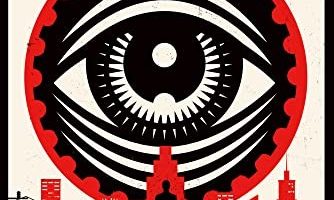 The anger I felt rising to the surface had a hard time getting there because of the shock and sadness that also rose within me.
The anger I felt rising to the surface had a hard time getting there because of the shock and sadness that also rose within me.
The image of the dead young Haitian woman on the front page of the January 14 edition of The Miami Herald saddened me because of the loss of life, angered me because of the newspaper’s blatant disregard for her dignity, and shocked me because I simply could not grasp that an editor felt it appropriate to display such an unnecessarily graphic photo.
My disgust with The Herald deepened when I read its ombudsman’s lame justification for the paper’s incredibly poor judgment. First of all, Mr. Ombudsman, you do not get to determine what I criticize. Your assertion that now is not the time to be critical of The Herald is weak, and based on what? A dead woman’s dignity was compromised by your paper. Calling any publication to the carpet regarding how women are portrayed is a 24/7/365 obligation.
Secondly, I feel sorry for your daughters. Your statement that “…as the father of two young women, I wasn’t troubled; the photo powerfully conveyed the tragedy of a lost life” is naïve and mind boggling.
I agree that the photo helped to convey the tragic loss of life, but I strongly disagree that showing the young woman’s partially clad rear did anything whatsoever to help us fully comprehend her death due to this catastrophic event.
Further, as the mother of two young women, I’d be ready to place my typically non-violent hands around a photographer’s and/or editor’s neck for disrespecting my daughters that way, especially if they had been rendered permanently defenseless against the insensitive action by death.
Your role as a father should trump that of ombudsman. Most good fathers want for other young women what they want for their own daughters: To be respected, in life and, especially, in death. Your newspaper fell woefully short in that regard, and your justification for it simply pours salt into the wound.
As a former social worker, I am very good at looking at issues from others’ points of view. Try as I may, I can find no reasonable explanation for the editor’s decision to run this photo without cropping it, however many centimeters required to maintain the young woman’s dignity.
While the disappointment I feel regarding the paper’s decision to run the photo unedited is strong and difficult for me to shake, I am appreciative of The Herald’s otherwise comprehensive coverage of this enormous tragedy. Author Edwidge Danticat’s poignant essay, “Bloodied, shaken – and beloved,” was heartfelt and beautiful and sad and sobering. And I agree with you, Mr. Ombudsman, that a diverse newsroom is essential to conveying the true scope of a story of this magnitude.
I can’t help wondering whether a diverse newsroom was a factor in the paper’s decision to publish the questionable photograph. I hope against hope that any woman anywhere in the newsroom who realized what the paper was planning to do vigorously defended her sister’s dignity. Any woman who stood by and did not at least object to the decision may need to relinquish her sisterhood card.
The full reality of Haiti’s devastation would not have been lessened by a less graphic photo. The full sense of loss and despair would have come through just as strongly with the slightly cropped image of our sister’s lifeless body.
RMHarris15@Aol.com












No Comment